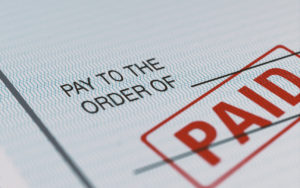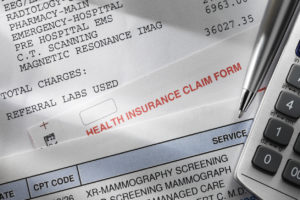Have you been injured and do not know how your medical bills will be paid? Don’t panic. This article written by our Georgia accident and injury lawyers will explain your options to pay for medical care.
Key Points:
- Wondering, “how do I pay for medical care” while I wait for my accident case to settle? You have several options: medical insurance, medical payments coverage, or attorney lien care.
- If you have both medical health and automobile medical payments coverage, both policies may pay for some or all of your medical care.
- If you do not have medical insurance, other options exist, such as treatment on a medical or attorney’s liens or personal injury medical funding.
After any Georgia car accident or other injury, you are responsible to pay for your own medical expenses until your case settles or pays you money.
But if this seems very unfair, you are not alone. You have options to get your bills paid after a car accident, even if you do not have medical insurance. Some of the ways you have to get your medical treatment on track and paid for include private medical insurance, government assistance, medical payments coverage, medical liens, attorneys liens or or private medical-legal funding.
When to Expect Medical Bills After a Car Accident
After a car accident, the arrival of medical bills can vary based on several factors. Most healthcare providers might send a bill immediately after services or within their regular billing cycle, which could range from a few weeks to a month. If you’ve given your health insurance details, providers will bill the insurance first, adding time to the process. This delay can stretch further if you’ve undergone complex treatments or if there’s a dispute regarding who is responsible for the accident, potentially leading to multiple bills arriving at different times.
In many cases, you can expect medical bills within 30 days of the treatment. However, especially with extensive medical care or ongoing treatments related to the accident, bills might appear several months post-treatment. It’s crucial to retain all medical documentation and maintain open communication with your insurance and healthcare providers to stay informed.
Medical Bills Will Usually Arrive Before Car Accident Compensation
With medical bills typically arriving in your mailbox 3 to 6 weeks after a car accident, its common for these bills to appear before any settlement from the incident, which can understandably cause stress for accident victims. Some auto insurance companies might offer an immediate, low-ball settlement check in hopes that you’ll accept it. However, these initial offers are rarely sufficient to cover all medical expenses.
To secure an amount that adequately addresses your medical bills, it’s often necessary to file a legal claim with the help of a car accident lawyer. The entire legal claim and settlement process can span anywhere from 3 to 24 months. On average, a car accident case settles between 6 and 9 months from the date of the accident. This timeline can raise concerns: How should you manage medical debt while awaiting your settlement to avoid penalties?
Can Delaying Payment of Car Accident Medical Bills Result in Penalties?
If you delay paying medical bills from a car accident, several consequences could arise:
- Late Fees and Interest: Just like any other bill, medical providers might charge late fees or interest if you don’t pay on time. The exact amount or percentage can vary based on the healthcare provider or the terms of any agreement you might have with them.
- Credit Score Impact: Unpaid medical bills can be sent to collections if they remain unpaid for a certain period. Once in collections, they can negatively affect your credit score, making future financial transactions like loan approvals or credit card applications more challenging.
- Legal Action: In some instances, if the bill remains unpaid for an extended period, the medical provider may take legal action to recoup the owed amount. This could result in a lawsuit, which might lead to wage garnishments or liens if the provider wins the case.
- Provider Relationship: Owing money can strain your relationship with the healthcare provider. They might become less willing to provide services in the future or might demand upfront payment.
Strategies for Managing Medical Bills to Avoid Penalties While Awaiting a Settlement
Utilize MedPay Coverage in Your Auto Insurance Policy
If you have MedPay, you can connect with your auto insurance provider and request for them to cover the medical bills once you receive them. MedPay, short for “Medical Payments”, is an optional feature in auto insurance policies designed to cover medical expenses related to a car accident, irrespective of who’s at fault. It provides coverage for a range of costs, including hospital visits, surgeries, ambulance fees, and even prostheses. Unlike liability insurance, which pays based on the determination of fault, MedPay offers a “no-fault” coverage, ensuring prompt medical attention without waiting for fault resolutions. While policyholders choose a coverage limit, MedPay’s simplicity stands out, often bypassing the complexities of traditional health insurance, covering accident-related expenses directly, and sometimes even covering treatments that regular health insurance might exclude.
Negotiating a Payment Plan with Your Hospital or Specialist
If you lack health insurance, MedPay coverage, or haven’t received compensation from a car accident, consider reaching out to the billing department of the medical facility that issued your bill. Many hospitals and specialists offer payment plans without interest charges. Typically, they’re flexible, allowing for manageable monthly payments. This arrangement can be beneficial, enabling you to make smaller payments each month until your settlement arrives. Opting for this approach is advantageous: not only are you likely to recoup these payments from your settlement, but it also ensures you avoid any penalties.
Utilizing Your Health Insurance Provider
If you have health insurance, your provider will typically cover the medical bills initially, regardless of who is at fault for the car accident. It’s advisable to let your health insurance handle these bills, understanding they’ll later seek reimbursement through subrogation. This process can add a few weeks before you receive the medical bills but ensures the healthcare provider is paid promptly. Once in subrogation, it alleviates the immediate pressure of medical bill payments. If your health insurance is aware that you’re pursuing a car accident lawsuit, they may patiently await the compensation meant for them. Although health insurance companies are reluctant to cover costs that another insurance should address, this approach can be beneficial.
Medical Liens
In some cases, medical providers might agree to treat you in exchange for a lien against your future settlement. This means they will wait for payment until your settlement is finalized.
Loans or Credit Cards (Last Resort)
We advise clients to consider loans or credit card usage as a last resort. While these are available options, there are often more favorable alternatives to explore first.
In most personal injury cases, out-of-pocket medical expenses are typically included as part of the damages claimed. If you successfully reach a settlement or win a judgment in court, these costs should be compensated. However, the exact reimbursement will depend on the specifics of the settlement agreement, the evidence you provide regarding your expenses, and negotiations between parties. Always keep detailed records of all medical expenses incurred, including receipts and invoices, to ensure you can substantiate your claim for reimbursement. Consulting with a personal injury attorney can give you a clearer picture of what to expect based on the particulars of your case.
A medical lien is an agreement where a medical provider treats an injured individual without immediate payment, with the understanding they’ll be compensated from any lawsuit settlement or judgment the patient may receive. This arrangement allows individuals lacking health insurance or immediate funds to access necessary medical care. Providers are paid directly from the legal proceeds before the patient receives their portion.
While medical liens offer a way to obtain immediate medical attention, there are considerations. Medical care under a lien might have higher costs due to the provider’s delayed payment risk. Also, if the patient’s settlement is lower than anticipated or if they lose the case, they remain responsible for the medical bills. It’s essential to consult with a personal injury attorney before agreeing to a medical lien to understand its implications fully.
Keeping track of medical bills after an accident or injury is essential to ensure you’re adequately compensated in any settlement. Start by creating a dedicated file or digital folder where you store every medical-related document. This includes not just bills, but also prescriptions, medical reports, discharge summaries, and any other relevant documentation. It’s also a good idea to maintain a detailed log or journal, where you note each medical visit, the purpose of the visit, and any associated costs. Regularly update this log and ensure it aligns with the bills you receive.
In addition to your own record-keeping, maintain open communication with your attorney. Regularly share copies of your bills and any related documents with them. Before finalizing a settlement, review a comprehensive list of medical expenses with your attorney to ensure nothing has been overlooked. This collaboration ensures that all medical costs, both current and potential future expenses, are accounted for in the negotiation process. Remember, meticulous documentation and proactive communication are key to ensuring full compensation for your medical expenses.
Personal injury law firms typically do not directly provide financial assistance or advance loans to their clients. Instead, they often operate on a contingency fee basis, meaning they don’t get paid unless you win your case or secure a settlement. However, they are aware of the financial strain that can accompany a personal injury case, especially when medical bills pile up.
While the law firm itself might not lend money, some firms have relationships with third-party companies that offer lawsuit or pre-settlement loans. These are advances against your potential future settlement. It’s crucial to approach these loans with caution, as they can come with high interest rates and fees. Before considering such a loan, discuss it with your attorney to understand the implications fully and to explore all available options for managing your expenses while your case is pending.

 1201 West Peachtree Street #2339 Atlanta, GA 30309+1-770-212-3795$0-$100000
1201 West Peachtree Street #2339 Atlanta, GA 30309+1-770-212-3795$0-$100000The Millar Law Firm was great and have exceptional lawyers who care about you and your case. Justin Oliverio worked my case and he was diligent and speedy. Always answered my calls and questions.
















